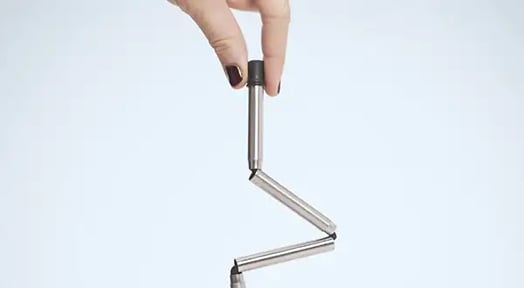Emma Cohen’s idea was a hit from the beginning: Her environmentally friendly, reusable plastic straw raised $1.8m on Kickstarter and racked up 86k pre-orders.

But after a successful “Shark Tank” appearance and $5m in revenue during its first year, the wildly successful young company ran into a problem: fake straws.
A problem that really sucks
Despite patenting its technology, FinalStraw has had trouble reining in fake straws, CNBC reports.
Although authentic FinalStraws cost $25, impostor FinalStraws are available online for as little $1, cutting into FinalStraw’s business. Some of them even used photos of Cohen’s dog.
Cohen has spent millions fighting fake straws: Today, 3 of her 16 contractors are dedicated to fighting straw-fraud (she also retains 2 lawyers to help root out straw-frauds).
The copycat economy
FinalStraw isn’t the only business to have this problem: Many intellectual property thieves routinely steal promising projects straight from KickStarter and use influencers to build fake brands practically overnight.
The problem can be particularly hard to police in China, where companies like FinalStraw often need to file separate patents to secure any kind of copyright protection.
